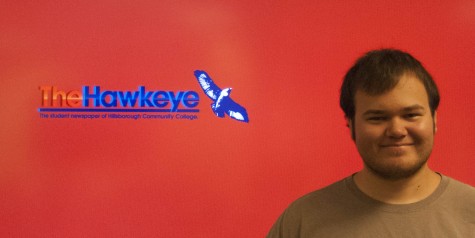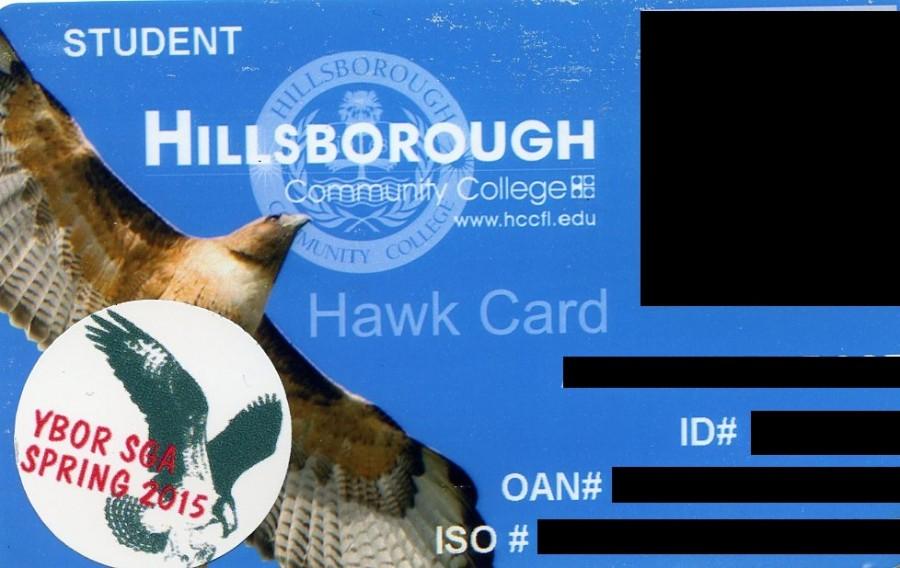Ybor campus adopts Hawk Verify system
Hawk Verify keeps money in the hands of students.
As currently enrolled HCC students, we have access to several events over the semester. Using the activity fees from your tuition, the SGA hosts festivals almost every month. Sometimes ex-students or program students, who don’t pay that fee, come to the events. This creates a problem. So, following the Plant City campus lead, the Ybor campus is now incorporating Hawk Verify to make sure that only currently enrolled degree students are using student money.
Verification will be open for every event starting with the Welcome Back Festival. More students getting verified earlier will speed up the lines and give a better idea of how many people will be at the later events.
The process of getting verified is very simple, take your card to an event or the SGA office and register. A sticker will be put on your card, proving your verification. Helping students getting verified is Chiquita Johnson, who knows that students pay a lot and want them to get what they pay for, “We give out backpacks, food, water bottles and mini USB sticks, but we only want our students to get them. The students pay for it.”
Plant City has been using Hawk Verify for a year and has been very successful with their efforts and Ybor is the second campus to adopt the program. Dale Mabry and Brandon are planning on starting Hawk Verify soon as well. Nothing against the fine alumni and program students of HCC, but they don’t pay for events and shouldn’t be attending events for the free food and supplies.
The campus is so ingrained with the city of Ybor that a quick walk one block south from the library, and you’re in Centro Ybor. Take a trolley and you can get to downtown and the Channelside District in a few minutes. But that also means that whoever is in Ybor can come to the campus easily. The previous ID system keeps any wandering tourist or others from taking tickets at events, but not returning students or program students.
Let’s say that an average event brings in 500 people. In the past, SGA estimates that at least 100 of them were not current students. Meaning a fifth of the attendees did not pay for the food they ate, and anyone who has hosted a party knows that food is usually the most expensive part of the planning. Students should take advantage of the services offered to them by the college because they pay for it. Johnson says, sometimes “The GED students, about 100 of them, would come over and take advantage of the events.”
This program may sound insensitive to program students, but it is simple economics. If the SGA wants to host more events, they have to use the money from paying students. If nonpaying students attend, they are taking money from the SGA that could be used in more events. You wouldn’t want people showing up to your house and taking your food, so why would you want people showing up to events and taking supplies you paid for?

Alexander Rose is a Managing Editor of The Hawkeye.
Alex was born in Tampa, Florida. He lived in Honduras for four years then moved to Brooksville...


Aaren Field • Mar 22, 2015 at 5:11 pm
I’m really happy to see HCC is using the verify system. As a paying student, it’s assuring to know what my money is being spent on. Random fees can add up, and it’s nice to know these fees are real charges that include things like food at events. Although I have not yet taken advantage of the events, I like that HCC works to provide these kinds of events for the benefit of its students. It would be totally unfair if non students could take advantage of free food, drinks, and services, because they aren’t paying for them. I would never go to a free event and pretend to be something I wasn’t so I could have access to free things. Someone is paying for it, and if it’s not you, you shouldn’t take advantage. Obviously people will try, so I’m glad HCC is implementing this verification system.